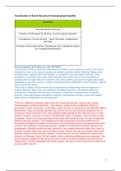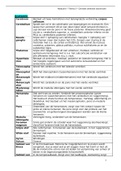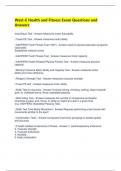Class notes
Lecture 6 European Labour Law and Social Security Law
- Course
- Institution
This document contains all the notes I took during lecture 6 of the course 'European Labour Law and Social Security Law'. I passed this course with an 8!
[Show more]












